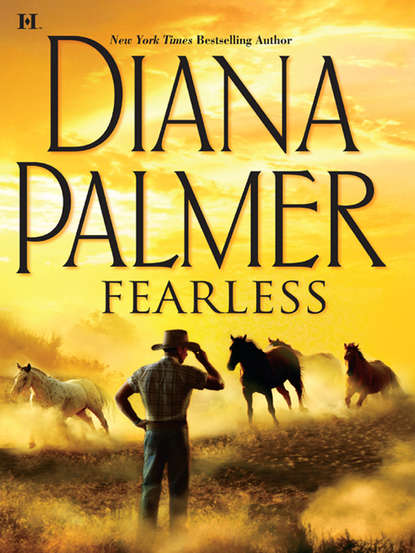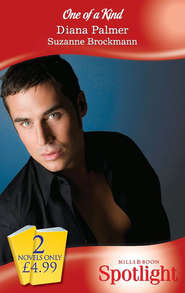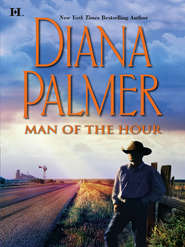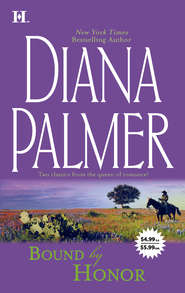По всем вопросам обращайтесь на: info@litportal.ru
(©) 2003-2024.
✖
Fearless
Автор
Год написания книги
2018
Настройки чтения
Размер шрифта
Высота строк
Поля
Rodrigo was an agent for the Drug Enforcement Administration. He and Sarina, a fellow agent, had worked out of the Tucson division for three years. Then they’d been asked to go undercover in Houston to ferret out a smuggling enterprise. They’d been successful. But Colby Lane, who’d helped set up the smugglers, had walked off with Sarina and Bernadette. Rodrigo had been devastated.
Sarina had promised Colby that she’d give up her DEA job and go to work for Police Chief Cash Grier here in Jacobsville. So Rodrigo had asked for this undercover assignment, to be near her. But Sarina had been persuaded by the DEA to work with Alexander Cobb in the Houston office on another case. Colby hadn’t liked it. Rodrigo had liked it less. She was in Houston, and he was here. Colby had remained at Ritter Oil Corporation in Houston as assistant of security for the firm, while Sarina settled back in with the Houston DEA office. Bernadette was back in Houston finishing out the school year in a familiar place.
Sarina had come here to tell him the news. It had been painful, seeing her again. She knew how he felt; she was sorry for him. It didn’t help. His life was in pieces. She was concerned that his cover was too flimsy and he stood to be killed if the drug lords found him out. It didn’t matter. There was a price on his head in almost every other country in the world from his days as a professional mercenary. This country was the only place left where he wasn’t in danger of being assassinated. On the other hand, his line of work was likely to get him killed.
“You don’t talk much, do you?” Rodrigo asked the woman peeling peaches beside him.
She smiled. “Not a lot, no,” she replied.
“How do you like the job, so far?” he asked.
“It’s nice,” she replied. “And I like Consuelo.”
“Everyone does. She has a big heart.”
She peeled another peach. He finished his coffee and got up to get a refill for himself. She noticed. “I don’t mind doing that,” she said. “It’s part of my job to work in the kitchen.”
He ignored the comment, added cream to his coffee, and sat back down. “How did you hurt your leg?”
Her face closed up. She didn’t like remembering. “It was when I was a child,” she said, circumventing the question.
He was watching her, very closely. “And you don’t talk about it, do you?”
She looked him in the eye. “No. I don’t.”
He sipped coffee. His eyes narrowed. “Most women your age are married or involved with someone.”
“I like my own company,” she told him.
“You don’t share things,” he replied. “You don’t trust anyone. You keep to yourself, do your job and go home.”
Her eyebrows arched. “Are we doing a psychological profile?”
He laughed coolly. “I like to know something about the people I work with.”
“I’m twenty-six years old, I’ve never been arrested, I hate liver, I pay my bills on time and I’ve never cheated on my income tax. Oh,” she added, “and I wear size nine shoes, in case it ever comes up.”
He chuckled then. His dark eyes were amused, alive, intent on her face. “Do I sound like an interrogator?”
“Something like that,” she said, smiling.
“Consuelo says you speak Spanish.”
“Tengo que hablarlo,” she replied. “Para hacer mi trabajo.”
“¿Y qué es su trabajo, pues, rubia?” he replied.
She smiled gently. “You speak it so beautifully,” she said involuntarily. “I was taught Castilian, although I don’t lisp my‘c’s.”
“You make yourself understood,” he told her. “Are you literate?”
She nodded. “I love to read in Spanish.”
“What do you like to read?”
She bit her lower lip and gave him an odd look. “Well…”
“Come on.”
She sighed. “I like to read about Juan Belmonte and Joselito and Manolete.”
His eyebrows arched toward his hairline. “Bullfighters? You like to read about Spanish bullfighters?”
She scowled. “Old bullfighters,” she corrected. “Belmonte and Joselito fought bulls in the early part of the twentieth century, and Manolete died in the ring in 1947.”
“So they did.” He studied her over his coffee mug. “You’re full of surprises, aren’t you? Soccer and bullfighting.” He shook his head. “I would have taken you for a woman who liked poetry.”
IF HE’D KNOWN HER, and her lifestyle, it would have shocked him that she’d even considered doing manual labor, much less read poetry. She was amused at the thought.
“I do like poetry,” she replied. And she did.
“So do I,” he said surprisingly.
“Which poets?” she fished.
He smiled. “Lorca.”
Her lips parted on a shocked breath. “He wrote about the death of his friend Sánchez Mejías in the bull ring.”
“Yes, and was killed himself in the Spanish Civil War a few years later.”
“How odd,” she said, thinking aloud.
“That I read Lorca?”
“Well, considering what he wrote, yes. It’s something of a coincidence, isn’t it?”
“What poets do you read?” he returned.
“I like Rupert Brooke.” In fact, as she looked at Rodrigo she was remembering a special poem, about death finding the poet long before he tired of watching the object of the poem. She thought involuntarily that Rodrigo was good to look at. He was very handsome.
He pursed his lips. “I wonder if we could possibly be thinking of the same poem?” he wondered aloud.
“Which one did you have in mind?” she probed.
“‘Death will find me long before I tire of watching you,’” he began in a slow, sensuous, faintly accented tone.
The peach she was peeling fell out of her hands and rolled across the kitchen floor while she stared at the man across the table from her with wide-eyed shock.











